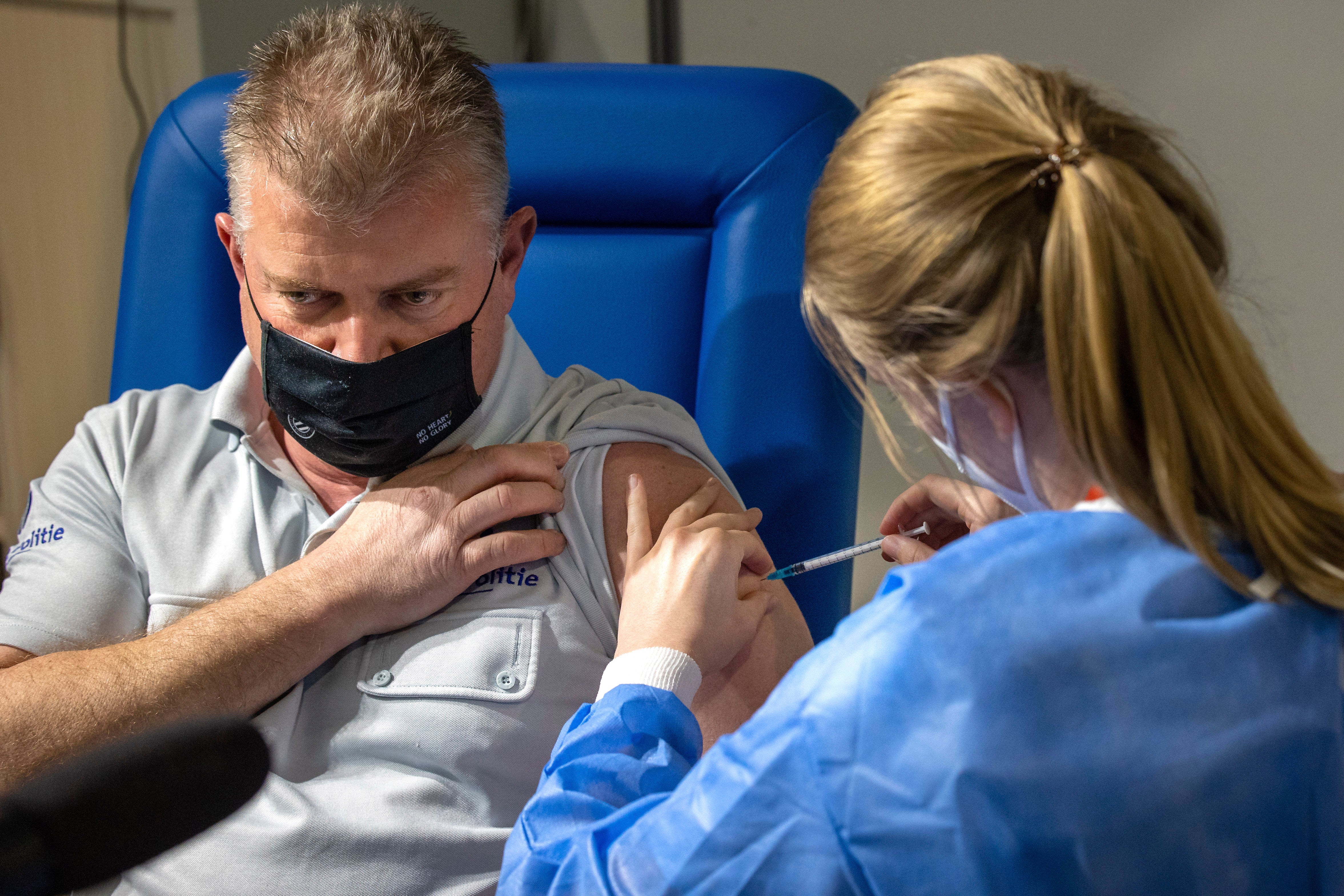EU, Italy stop AstraZeneca vaccine exports to Australia
A shipment of a quarter million AstraZeneca vaccines destined for Australia has been barred from leaving the European Union in the first use of an export control system instituted by the bloc over a month ago

Your support helps us to tell the story
From reproductive rights to climate change to Big Tech, The Independent is on the ground when the story is developing. Whether it's investigating the financials of Elon Musk's pro-Trump PAC or producing our latest documentary, 'The A Word', which shines a light on the American women fighting for reproductive rights, we know how important it is to parse out the facts from the messaging.
At such a critical moment in US history, we need reporters on the ground. Your donation allows us to keep sending journalists to speak to both sides of the story.
The Independent is trusted by Americans across the entire political spectrum. And unlike many other quality news outlets, we choose not to lock Americans out of our reporting and analysis with paywalls. We believe quality journalism should be available to everyone, paid for by those who can afford it.
Your support makes all the difference.A shipment of a quarter million AstraZeneca vaccines destined for Australia has been blocked from leaving the European Union in the first use of an export control system instituted by the bloc to make sure big pharma companies would respect their contracts
The move, affecting only a small number of vaccines, underscores a growing frustration within the 27-nation bloc about the slow rollout of its vaccine drive and the shortfall of promised vaccine deliveries, especially by Anglo-Swedish AstraZeneca.
The Financial Times on Thursday first reported on the ban that came at the behest of Italy, and an EU official, who asked not to be identified because of the sensitivity of the issue, confirmed the bloc's executive Commission did not raise objections.
Italy has been taking a tough line in dealing with vaccine shortages in the bloc since a new government led by Mario Draghi came into power last month.
Faced with shortages of doses during the early stages of the vaccine campaign that started in late December, the EU issued an export control system for COVID-19 vaccines in late January, forcing companies to respect their contractual obligations to the bloc before commercial exports can be approved.
The EU has been specifically angry with AstraZeneca because it is delivering far fewer doses to the bloc than it had promised. Of the initial order for 80 million doses to the EU in the first quarter, the company will be struggling to deliver just half that quantity.
There were rumors that the company was syphoning off from EU production plants to other nations, but CEO Pascal Soriot insisted that any shortfall was to be blamed on technical production issues only.
The company refused to comment on Thursday's news.
The EU has vaccinated only 8% percent of its population compared to over 30%, for example, in the United Kingdom. Australia is still very much at the start of its vaccination drive.
With such an action, the EU is caught in a bind. On the one hand, it is under intense pressure to ramp up the production of vaccines in the bloc while on the other hand it wants to remain an attractive hub for pharmaceutical giants and a fair trading partner to third countries.
The EU thought it had made perfect preparations for the rollout of vaccinations, heavily funding research and production capacity over the past year. With its 450 million people, the EU has signed deals for six different vaccines. In total, it has ordered up to 400 million doses of the AstraZeneca vaccine and sealed agreements with other companies for more than 2 billion shots.
It says that despite the current difficulties it is still convinced it can vaccinate 70% of the adult population by the end of summer.
___
Danica Kirka contributed from London